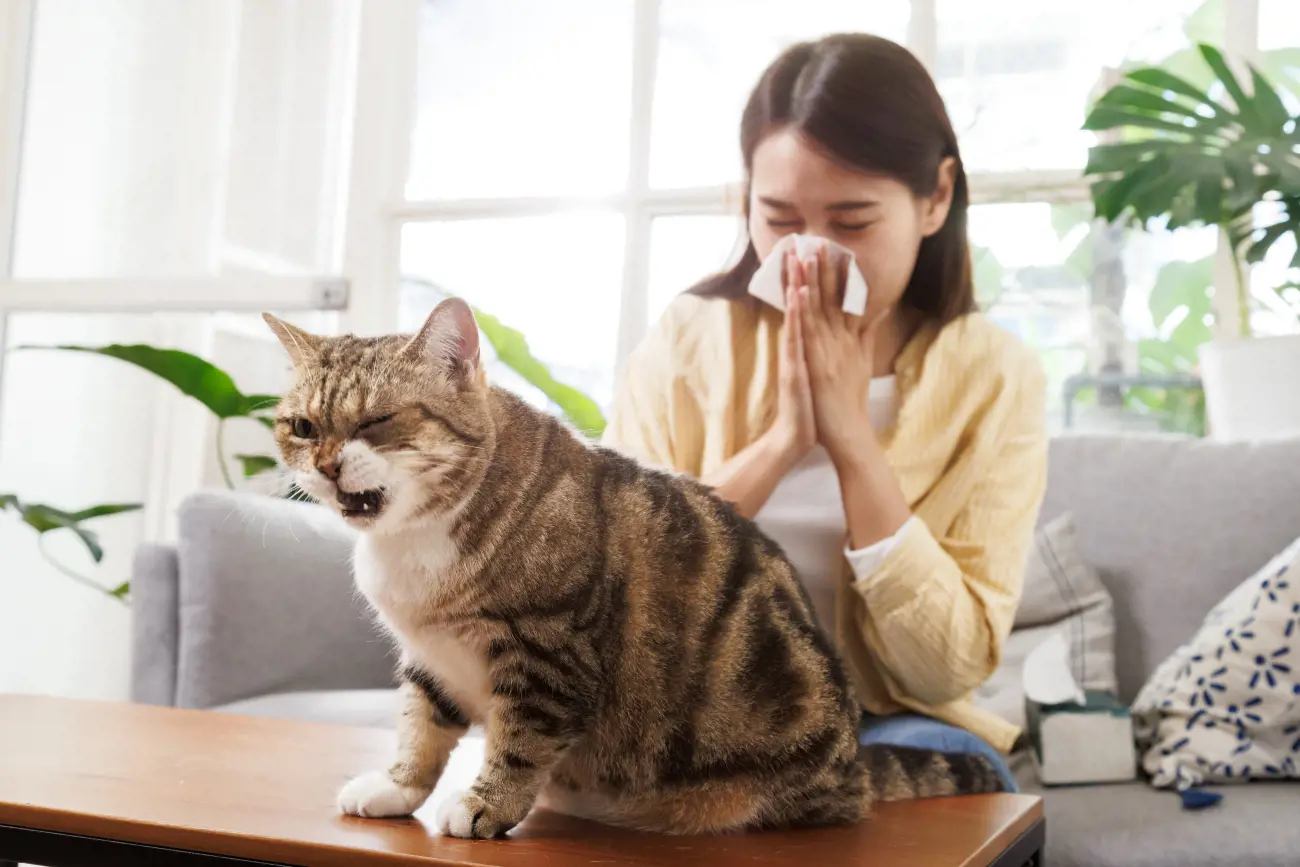Top tips for visiting the vet with your dog
4th March, 2021

Visiting the vet with your dog is a regular occurrence but can be a source of stress for many pet owners. Such trips aren’t just vital for annual check-ups and vaccinations but also if your pup has an accident or becomes ill.
Unfortunately, many pets associate a trip to the vet with something unpleasant – whether pain, discomfort, or stress. To make sure your vet appointments go without a hitch, follow our top tips to a trouble-free visit.
All dogs will need to see a vet at some point in their lives and that’s why choosing the right pet insurance is so essential. Here at Purely Pets, with 15 levels of award-winning lifetime cover on offer, we can help you find the perfect fit for your precious pooch.
Tip 1: Start handling early
Not every animal will appreciate being prodded and examined by a stranger, and even the most chilled canines can easily be stressed by the amount of attention. A good way to deal with this is to get them used to being handled from an early age.
But we don’t just mean a few strokes and tickles. Vets will need to inspect their paws, teeth and ears and will often need to touch them around their legs, head, chest and even around their tails.
While a dog is young it’s worth doing this on a daily basis to get them completely comfortable with being handled in those areas. It’s also a good way to check for lumps and bumps and to watch out for any troubling changes in their health as they get older.
Tip 2: Visit the vet before an appointment
Going to an unfamiliar place will always be stressful for a dog, even more so if something they find unpleasant then happens. A good idea is to call ahead to arrange a visit to your vet surgery beforehand.
That way, your pup will soon get used to the new sights, sounds, smells and people. So, when you do visit in an official capacity they’ll be a bit less stressed.

Tip 3: Be prepared
If you’re rushed or unsure of what to do at the vet surgery, then your pooch is sure to pick up on your signals of discomfort. Dogs look to us for help and support, so if you look worried they will be, too. As well as being prepared, always follow your vet’s pre-visit advice in terms of feeding times or exercise.
Tip 4: Keep calm
Speaking and behaving calmly around your pet will always help keep anxiety levels from rising. Even if you’re worried it’s important to appear relaxed for your dog’s sake.
While you’ll be worried about your pet’s health you should never be worried about whether you can afford treatment. Having the right pet insurance in place before health problems develop will mean the vet’s bill is one less thing to worry about.
Tip 5: Choose a quiet time of day
Vet surgeries can be busy places and if your dog is already feeling anxious then it might get all too much for them. Explain the situation to the vet and they might be able to get you an appointment at a quieter time of day. You’ll then avoid other potentially anxious pets and perhaps be seen quicker.
Tip 6: Pack something from home
Whether it’s a favourite toy or a blanket smelling of home, if you pack something familiar it will help your dog feel that little bit more secure. Just as with children, thoughts of home can make all the difference to their emotions.
Particularly if your dog must stay in overnight, make sure they can have their toy or blanket with them for comfort while you’re not there.
Tip 7: Wait outside
Sometimes, for whatever reason, you may think the vet’s waiting room is just not the best place for your four-legged friend. Perhaps there are lots of cats around or you think your dog is getting unnecessarily stressed.
If that is the case, then there’s no harm in waiting outside or in your car until your appointment time. Being outside in the fresh air will help you both feel that bit more relaxed.
Tip 8: Keep the rewards handy
When dealing with a dog’s behaviour, positive reinforcement is a truly invaluable tool in a dog lover’s armoury. And there are few better ways to do this than with praise and your dog’s favourite treat. Once they know that a visit to the vet involves lots of tasty morsels they’ll soon realise there’s nothing to be afraid of.

Tip 9: Watch for warning signs
We can all recognise a happy dog. With their tail loosely swinging, eyes round, ears floppy and tongue lolling we can all tell they are content and relaxed. However, signs of anxiety and fear can be more subtle and could be missed by a busy vet.
Watch out for:
-
Pacing or shaking
-
Whining or barking
-
Panting
-
Repeated yawning, drooling and licking
-
Eyes wide with the whites showing
-
A closed, tight mouth, and ears held back
-
A tense, lowered body with tail tucked beneath
-
Lifting a paw and blinking or turning their head away from something
Dogs Trust has produced a handy leaflet on helping your dog have happy vet visits. And what to do if your normally mild-mannered pet starts to growl!
Puppy’s first visit
As with any dog training, the earlier you start in the dog’s life the better. Animal charities all suggest that taking the time to get your puppy prepared for their first visit will pay off in the long run.
The Blue Cross has some excellent tips on what to do to make a puppy's first vet visit a success. These include how to train them for vet handling, getting them used to being lifted onto a surface and even preparing them for injections.
If you’re ever worried about your puppy then remember that pet insurance policyholders can access our Purely Pets 24-Hour Vet Helpline for guidance from our trained veterinary professionals.
Rest assured with Purely Pets
Whatever the reason for a visit to the vet, it can be stressful for both owners and their faithful friends. Pet insurance from Purely Pets will help cover any costs of treatment so you can focus on their wellbeing.
Give the dedicated team at Purely Pets a call and get a quote for pet insurance today.
Policy benefits, features and discounts offered may very between insurance schemes or cover selected and are subject to underwriting criteria. Information contained within this article is accurate at the time of publishing but may be subject to change.
Helpful Pages
Recent Posts

Why do Great Danes bury their heads?
12/03/25
Find out more about Beagles
28/02/25Pet Insurance Quote
- 98% claims paid *
- Claims paid directly to vets
- 24/7 vet video consultations
- Interest free monthly payments


